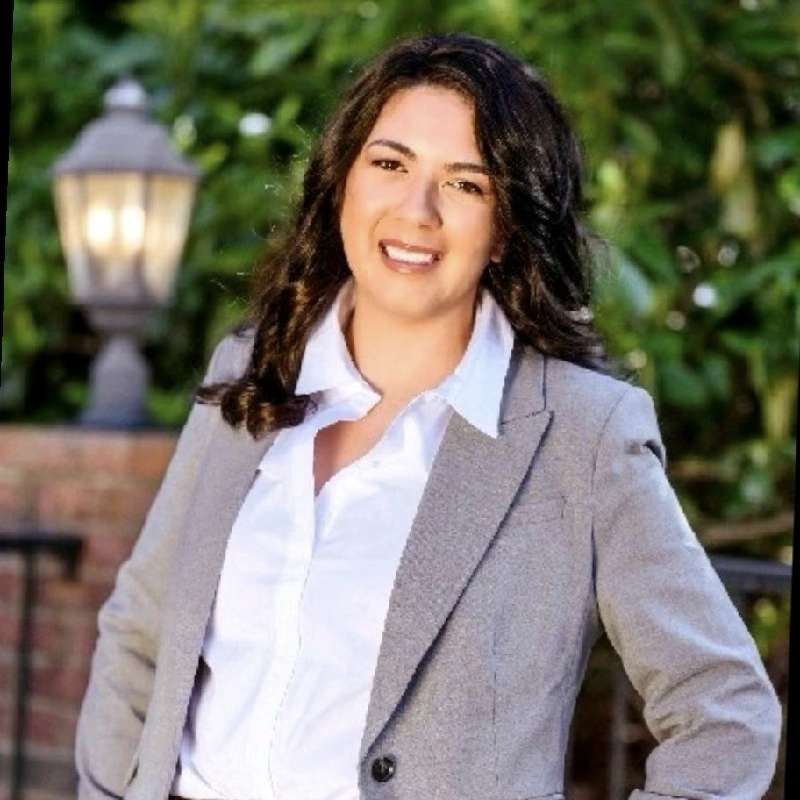
Kimmy Gustafson
Forensic nurse practitioners (NPs) combine their expertise in nursing, forensics, and law, to play a crucial role in safeguarding the well-being of their patients while ensuring justice is served. They work in any setting where NPs are typically employed including primary care, mental health, women’s health, pediatrics, and acute care. Their specialized forensic knowledge and trauma-informed practices, helps ensure patients get the care they need at a very difficult time in their lives.
Forensic NPs are at the forefront of delivering comprehensive care to individuals who have experienced violence or victimization. Armed with advanced degrees in nursing, such as a master’s in nursing (MSN) degree, and a wealth of specialized training, these practitioners possess the knowledge and skills to address both acute and long-term health consequences associated with traumatic events. By providing immediate medical attention and ongoing support, forensic NPs aid in the healing process and fulfill a critical role in gathering evidence for legal proceedings.
A career as a forensic NP is well suited for individuals with a passion for justice, strong medical knowledge, attention to detail, empathy and compassion, good communication skills, critical thinking and problem-solving abilities, ethical conduct, and a willingness to continuously learn and adapt. These qualities allow forensic NPs to provide comprehensive care to victims of violence, gather and preserve evidence, collaborate with legal professionals, and contribute to a more equitable society.
Keep reading to discover what it takes to become a forensic NP, including educational requirements, certification, and average salaries.

Ashley M. Ruiz, PhD, RN, is an assistant professor at Emory University’s Nell Hodgson Woodruff School of Nursing and a specialized sexual assault nurse examiner. Her research, grounded in Black feminist thought and intersectionality, examines the secondary victimization of Black women in healthcare following sexual assault. She prioritizes women’s voices to drive health equity and has contributed to statewide training programs in multiple states to improve healthcare responses to sexual assault survivors.
Currently, Dr. Ruiz is studying how healthcare models influence Black women’s experiences of secondary victimization in Maricopa County, Arizona. She recently received the PREHS-SEED K12 award to investigate the impact of natural disasters on gender-based violence. Her work continues to bridge environmental health sciences with gender-based violence research to advance health equity.
ForensicsColleges.com: What is something most people don’t know about being a forensic nurse practitioner?
Dr. Ruiz: Most people do not know that forensic nurse practitioners are on the frontline of challenging generations of sociopolitical dynamics that hinder everyone in society. We are truly leading a cultural shift within a system that shapes people’s ideas of who we consider worthy of protection. As a profession built on healthy relationships, we challenge dominant societal ideas of who we include or exclude in the group. As forensic nurse practitioners, it is inherently within our role and practice that we are challenging these taught socializations.
The very act of actively listening and providing a space for someone to process their loss and grief—a normal trauma response following violence—is a radical social-political practice that supports the person in front of us and all of society. We are specialized clinicians who stand to challenge the medicalization and the harm this causes people, particularly after experiences of violence. We are leaders in seeing, hearing, and listening to the people we serve. We provide options informed by science to our patients.
ForensicsColleges.com: What is one piece of advice you would give to someone considering a career as a forensic nurse practitioner?
Dr. Ruiz: A piece of advice I would give to someone considering a career as a forensic nurse practitioner would be that you need to commit to understanding the central humanity of this work to do it well. You are the only person people often have for an opportunity to tell their story and have it be heard, which is an essential component to processing grief.
Unfortunately, the way that survivors or people who have experienced interpersonal violence trauma specifically are often stigmatized and sensationalized, which just further overshadows and silences people’s need to process grief to self-regulate the body’s response to trauma. As leaders in this area of expertise, what we provide centers on valuing healthy relationships as a critical, basic, and required component to supporting our and each other’s health. Developing this understanding in your practice is challenging because of how we have been taught to think about us versus them. Our own experiences and how these experiences shape people’s lives and health outcomes are not exclusive to our role as forensic nurse practitioners.
Authentically providing healthy relationships is essential to maintaining and sustaining optimal human health outcomes, and it is also one of the most challenging aspects of life. As forensic nurses, we are again challenged by forced acculturation within social systems, specifically healthcare, from provider and patient roles.
The Bureau of Labor Statistics (BLS 2024) doesn’t differentiate forensic NPs from all NPs. Currently, all NPs are in high demand, and openings in this field are expected to grow 40 percent nationally between 2023 and 2033. This rate is much faster than the national average of 4 percent for all occupations. This increase will result in 141,200 new jobs for nurse practitioners in the coming decade.
Forensic NPs can join one of two professional associations. The first is the International Association of Forensic Nurses (IAFN) which includes NPs, registered nurses, and other healthcare professionals. They offer the Sexual Assault Nurse Examiner-Adult/Adolescent (SANE-A) and the Sexual Assault Nurse Examiner-Pediatric/Adolescent (SANE-P) certification. The IAFN has over 6,000 members.
The second is the Academy of Forensic Nursing (AFN), which includes nurses, NPs, physicians, residents, physician’s assistants, psychologists, and other mental health providers. The AFN certification is through the Forensic Nursing Certification Board (FNCB).
Forensic nurse practitioners earn wages that are much higher than the national average of $61,900 (BLS May 2023). At this time, the BLS doesn’t differentiate between nurse practitioner specializations. On average, NPs in the US earn $128,490 per year, with the following percentiles:
| United States | |
|---|---|
| Number employed | 280,140 |
| 10th percentile | $94,530 |
| 50th percentile (median) | $126,260 |
| 90th percentile | $168,030 |
ZipRecruiter (2025), an employment website, has more specific data for forensic NPs. They estimate that, on average, forensic NPs earn $130,295 per year. Location can be a significant factor in how much a forensic NP might earn. ZipRecruiter has identified the top 10 cities with the highest average salaries for forensic NPs:
Becoming a forensic NP takes dedication to many years of school. Here are the typical steps professionals take to enter this field:
Completing high school or earning a GED is the first step toward becoming a forensic NP. Students should focus on math and science classes to prepare them for additional studies.
All forensic NPs must first complete nursing school and become registered nurses (RNs). Students can choose to complete a two-year associate’s or four-year bachelor’s. A bachelor’s degree is highly recommended as it is required for most nurse practitioner degree programs.
After graduating from nursing school, students must sit for the NCLEX-RN exam and apply to their state nursing board for licensing.
To become an NP, RNs must complete a master’s of science or a doctor of nursing practice degree. These programs take two to four years, depending on previous education and the level of education pursued. Most students complete a general NP degree and then pursue additional education and certification in forensics, such as the Advanced Practice Forensic Nursing Certificate at the University of Tennessee Health Science Center College of Nursing
Professionals who want to stand out in this field can obtain optional certification through the Forensic Nurse Certification Board (FNCB) or the International Association of Forensic Nurses (IAFN).
At a minimum, forensic nurse practitioners must hold a master’s of science in nursing (MSN) degree, although a doctor of nursing practice (DNP) is highly recommended. Some MSN and DNP programs require applicants to complete one to two years of work experience as an RN to be eligible for admission, although many programs do not have those requirements.
Certification as a forensic NP does have additional education and experience requirements. For example, the Advanced Forensic Nurse Certified (AFN-C) designation from the FNCB requires applicants to have 300 clinical hours and 12 credit-hours of forensic nursing coursework from an accredited nursing program or 90 continuing education hours.
The duties and responsibilities of a forensic NP will vary based on their place of employment. Common locations include hospitals, sexual assault treatment centers, law enforcement agencies, correctional facilities, private practices, psychiatric clinics, and universities/research institutions. Typical duties for most forensic NPs will include:
Certification for forensic nurse practitioners is optional. However, it demonstrates a high level of competency in this field and may be required by employers. Obtaining certification can often help with employability as well as advancement opportunities. The two primary certifying agencies are the Forensic Nurse Certification Board (FNCB) or the International Association of Forensic Nurses (IAFN).
The FNCB offers the Generalist Forensic Nurse Certified (GFN-C) and Advanced Forensic Nurse Certified (AFN-C) certifications. The eligibility requirements for the GFN-C include:
To be eligible for the AFN-C certification, applicants must have:
The IAFN also offers two certifications. They are Sexual Assault Nurse Examiner- Adult/Adolescent (SANE-A) and Sexual Assault Nurse Examiner- Pediatric/Adolescent (SANE-P). Eligibility requirements include:

Kimmy Gustafson
Kimmy Gustafson’s expertise and passion for investigative storytelling extends to the world of forensics, where she brings a wealth of knowledge and captivating narratives to readers seeking insights into this intriguing world. She has interviewed experts on little-known topics, such as how climate crimes are investigated and prosecuted, and has written for ForensicsColleges.com since 2019.
Kimmy has been a freelance writer for more than a decade, writing hundreds of articles on a wide variety of topics such as startups, nonprofits, healthcare, kiteboarding, the outdoors, and higher education. She is passionate about seeing the world and has traveled to over 27 countries. She holds a bachelor’s degree in journalism from the University of Oregon. When not working, she can be found outdoors, parenting, kiteboarding, or cooking.

Rachel Drummond, MEd
Rachel Drummond has given her writing expertise to ForensicsColleges.com since 2019, where she provides a unique perspective on the intersection of education, mindfulness, and the forensic sciences. Her work encourages those in the field to consider the role of mental and physical well-being in their professional success.
Rachel is a writer, educator, and coach from Oregon. She has a master’s degree in education (MEd) and has over 15 years of experience teaching English, public speaking, and mindfulness to international audiences in the United States, Japan, and Spain. She writes about the mind-body benefits of contemplative movement practices like yoga on her blog, inviting people to prioritize their unique version of well-being and empowering everyone to live healthier and more balanced lives.